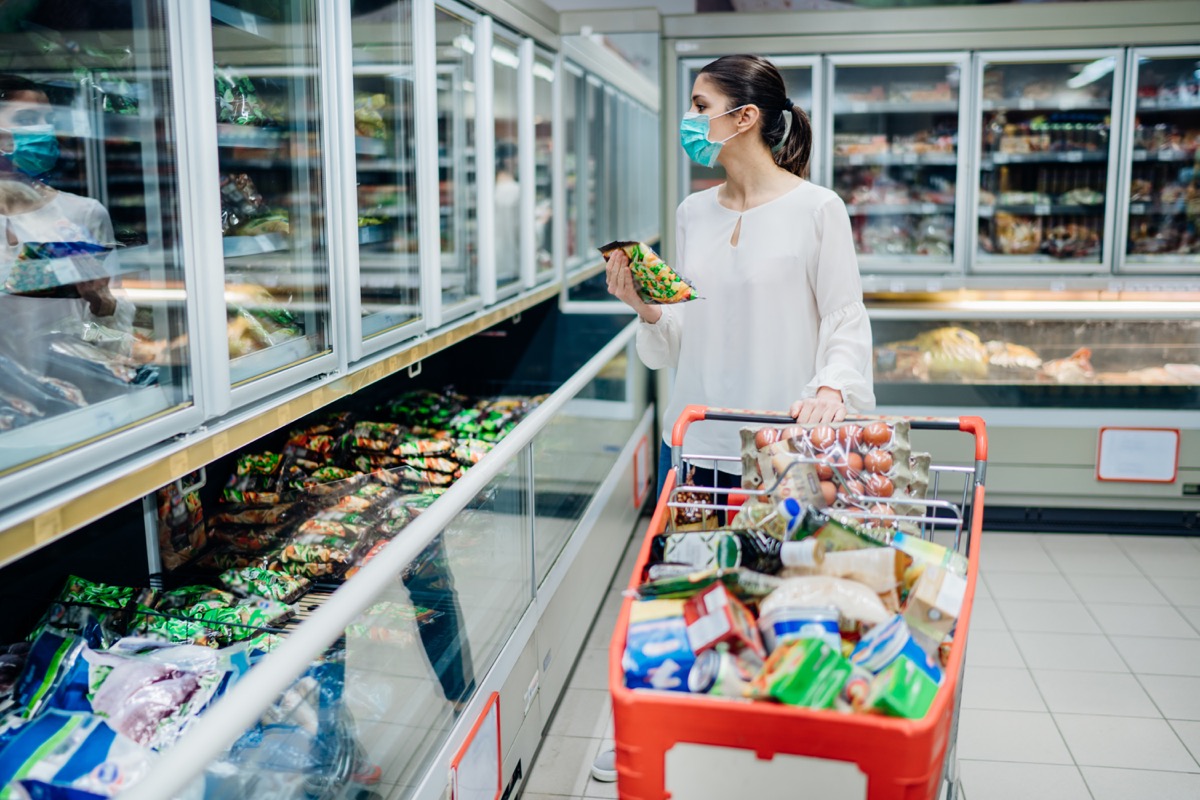One Major Change You’ll Notice on Grocery Store Shelves

It wasn’t that long ago when grocery shoppers used to thumb their noses at all of the generic-looking private-label products scattered across shelves and piled high in the aisles. But how times have changed. Since the coronavirus pandemic began and lockdown went into effect earlier this year, private label offerings—aka foods created to be sold as the store’s own product, such as “Joe O’s” cereal from Trader Joe’s or Kroger’s “Simple Truth” line—are increasingly becoming America’s go-to food option when they shop.
Sales for private-label products across the entire grocery store spectrum—from frozen foods to pastas, sodas, and snacks—have sharply risen in recent months, making a $90 billion segment of the grocery market even bigger.
“Consumers feel the need to be careful with their money because that is a lesson that everybody has learned from [the Great Recession],” Krishnakumar Davey, president of strategic analytics at IRI, told the food blog, Food Dive. “This means private label is going to do well. It’s a nice tailwind for private label under the current environment.”
Given the fact that they’re more affordable than brand-name products, the stigma once associated with buying store-brand foods has long evaporated. Plus, the fact that stores are desperate to move these kinds of products has many researchers predicting that private-label products are only going to grow and occupy even more space on grocery store shelves. The growth represents a shift in shopping behavior that started a few years ago, but which has been exacerbated by the economic events resulting from COVID-19.
A new report from the firm Deloitte notes that private-labels mean bigger profits, as they offer “25 percent to 30 percent higher margins” than traditional brand names. The report also says that private-label products have “outpaced the growth of traditional counterparts by three times since 2015.” According to the firm IRI, sales of private-label products in the food and beverage category should go from $10 billion last year to $12 billion this year.
If you’re curious to know what some of the best-rated private-label products at your local grocery store are, know that the Private Label Manufacturers Association recently rated hundreds of store-brand products from the US and Canada for the year 2019. The entire list of the winners you’ll find right here, but here are the notable “healthy” options:
- Free-From Foods: CVS Gold Emblem abound Dark Chocolate Edamame
- Gluten-Free: Southeastern Grocers Naturally Better Organic Gluten-Free Caramel Crunch Ice Cream
- Healthy Eating (tie): Dollar General Good & Smart Dried Apricots and Save A Lot Portside Seafood Co. Lemon & Pepper Light Tuna Pouch
- Natural Foods: Meijer Veggie Spirals
- Organic Foods: Boxed Prince & Spring Organic Applesauce Pouches
- Peanut Butter & Nut Butters: Thrive Market Non-GMO Creamy Almond Butter
- Rice & Grains: Kroger Simple Truth Organic Southwest Style Quinoa
So, if you’re shopping at the grocery store in the days ahead and you’re seeing the store’s name emblazoned on more items, you now know why. For more ways to be a smarter shopper, make sure you know the Shopping Tricks That You Won’t Believe Actually Work.








